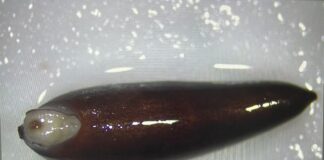Tura: The College of Community Science, Central Agricultural University (Imphal), Tura, Meghalaya, in collaboration with ICAR-NINFET Kolkata, ICAR-CICR Nagpur, Deendayal Research Institute, and ICAR-CRIJAF Barrackpore, announced the launch of the official poster for the upcoming National Symposium on “Threads of Heritage: Exploring Traditional Textiles and Natural Fibres.”
The symposium is scheduled to be held from January 27 to 29, 2025, at the College of Post-Graduate Studies in Agricultural Sciences, Umiam, Ri-Bhoi District, Meghalaya.
The poster was officially unveiled today during a press conference held at Conference Hall, College of Community Science, CAU (Imphal), Tura, Meghalaya highlighting the objectives and significance of this unique event. The symposium will serve as a dedicated platform to explore India’s rich textile traditions, sustainable fibre innovations, and economic opportunities in natural fibre industries.
The symposium will highlight India’s rich heritage in traditional textiles and natural fibers, with a special focus on Northeast India’s unique resources like banana, pineapple, bamboo, and ramie fibers. It aims to bring together experts, artisans, and policymakers to explore the cultural significance of heritage textiles and their potential for sustainable practices and economic growth.
At the event, Dr. Jyoti Vastrad, Dean of the College, highlighted the crucial role of natural fibers and heritage textiles in realizing India’s economic aspirations, particularly through sustainability and global market potential. She remarked, “India’s traditional textiles and indigenous fiber industries embody a rich legacy that not only preserves cultural heritage but also drives economic growth. This symposium seeks to unite experts, researchers, and entrepreneurs to promote innovation and sustainability in this vital sector.” She emphasized the untapped potential of Northeast India’s resources, such as fibers derived from banana pseudostems, ramie, jute, sisal, flax and pineapple leaf fibre , for eco-fashion and technical textiles. Additionally, tribal weaves, handwoven fabrics, and silks like eri and muga were recognized as hallmarks of craftsmanship and cultural heritage, offering significant export opportunities on a global scale.
The event will feature expert talks, live demonstrations, and the recognition of artisans, alongside initiatives that promote skill development, women’s empowerment, and zero-waste practices—aligning with India’s vision for sustainable and inclusive progress.
Key Highlights of the Symposium:
Technical Sessions & Panel Discussions – Covering sustainable cultivation, fiber processing innovations, natural fibers for health and wellness, and the economic impact of textiles.
Expert Speakers – Renowned researchers, artisans, policymakers, and entrepreneurs will share insights on the future of natural fiber industries.
Cultural & Textile Exhibitions – Showcasing traditional handloom fabrics, indigenous weaves, and eco-friendly fiber products.
Skill Development & Business Networking – Engaging sessions for artisans, start-ups, and textile entrepreneurs to explore emerging markets and branding opportunities.
The symposium will particularly highlight natural fibers from Northeast India, including banana pseudostem fiber, pineapple leaf fiber (PALF), Jute, Hemp,Sisal and ramie, along with wool and traditional silk varieties like Eri and Muga. These fibers hold immense potential in sustainable fashion, eco-friendly packaging, and industrial applications.
A Call to Action
The organizing committee invites researchers, artisans, industry professionals, students, and stakeholders to participate in this insightful event and contribute to the advancement of India’s textile heritage and fiber economy.


